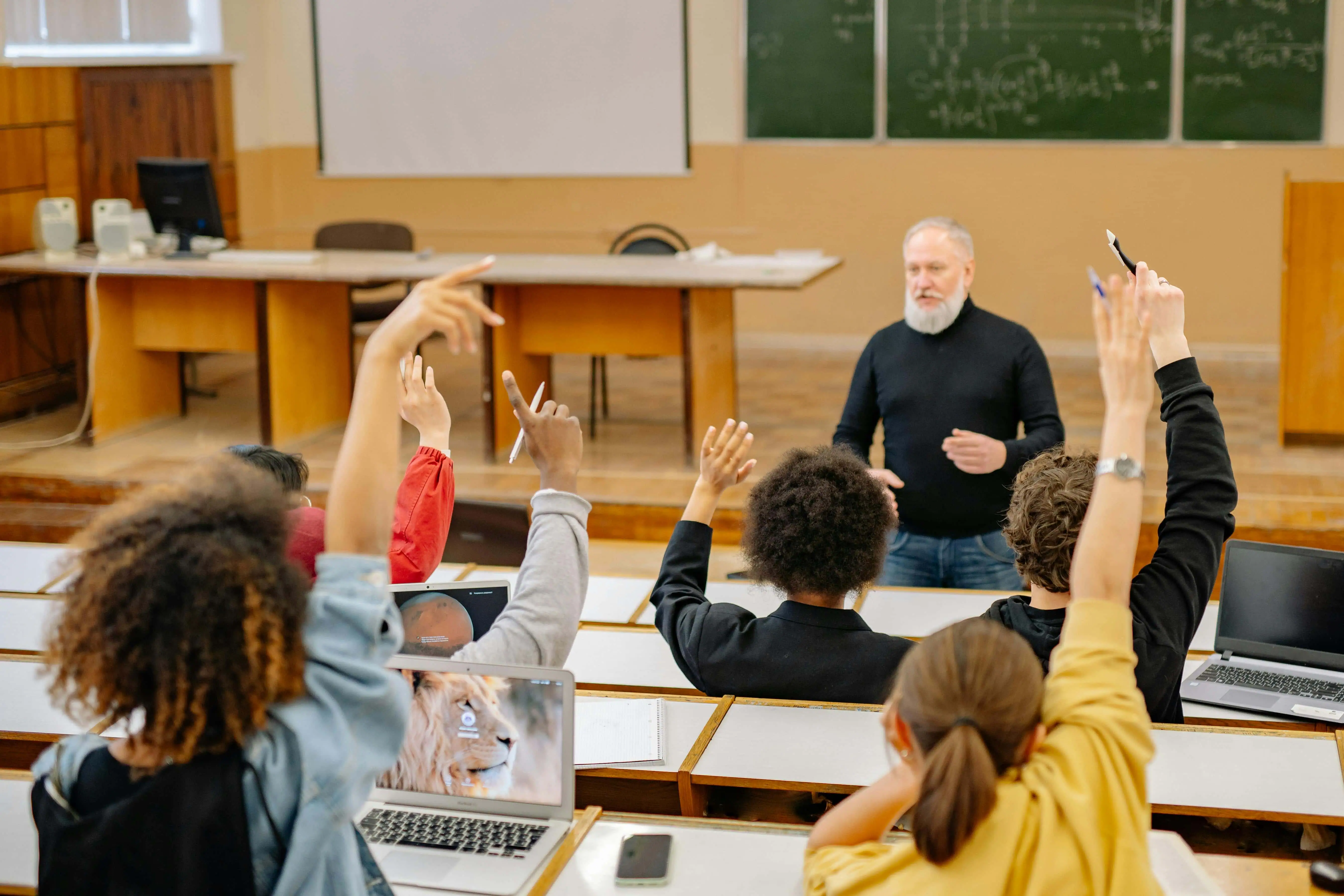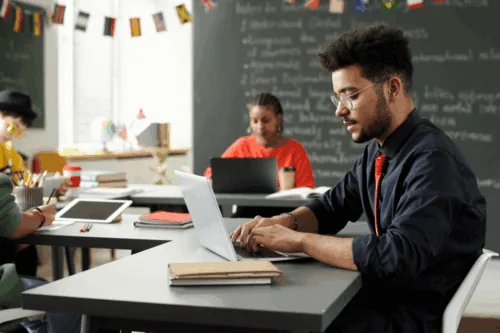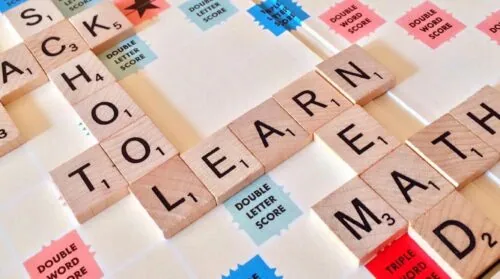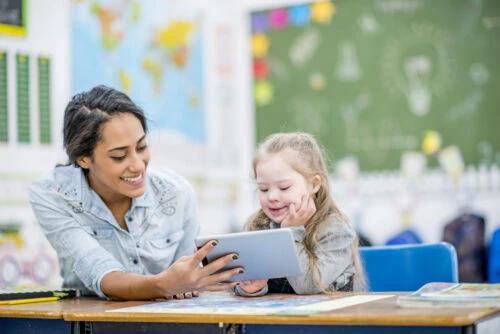Welcome to our comprehensive guide aimed at equipping students for the future. As the world evolves, so do the demands of the workforce and the educational arenas. This guide is designed to provide entry-level job seekers, students, and educators with the knowledge and tools needed to excel in a rapidly changing environment.
We will explore essential skills, technology integration in education, the importance of cultural awareness, and the benefits of real-world experiences such as internships and volunteering. Understanding and adapting to these elements are crucial for preparing the next generation of leaders and professionals.
Whether you are just starting your educational journey, looking forward to entering the workforce or guiding students on their path, this guide offers valuable insights for everyone. Let’s explore how to prepare effectively for a successful future.
Understanding the Needs of the Future
Understanding the evolving demands of the modern world is crucial to effectively preparing students for the future. As technological advancements and global connectivity reshape industries, the skills required for success are also changing.
Core Competencies for Future Careers
Future careers will require a blend of hard and soft skills. Key areas include:
- Technology Literacy: Proficiency with digital tools and platforms is a must.
- Communication Skills: Clear, concise communication is essential in a globally connected world.
- Creativity and Innovation: Thinking outside the box will distinguish successful professionals.
Understanding Global Trends
Moreover, understanding global trends will make students more adaptable and forward-thinking. Important trends include:
- Environmental Sustainability: Knowledge of sustainable practices is increasingly crucial in most sectors.
- Global market Dynamics: Understanding international markets can provide a competitive edge.
By focusing on these areas, educational programs can more effectively tailor their curriculums to meet these emerging needs. Also, engaging with global cultural celebrations can enrich students’ understanding of the world, preparing them for diverse workplace environments. Addressing these aspects will equip students with the necessary skills and a mindset geared towards lifelong learning and adaptability.
Building Essential Skills Early
Preparing students for the future involves nurturing essential skills from an early age. These capabilities are critical in helping them adapt and thrive in any professional environment they choose to enter.
Focus on STEM Education
Emphasis on Science, Technology, Engineering, and Mathematics (STEM) from early education stages equips students with problem-solving skills and a logical approach to challenges:
- Problem-Solving: Engaging in STEM activities helps develop critical thinking and analytical skills.
- Innovation: STEM education encourages creativity and adaptation through hands-on projects and experimentation.
Literacy and Numeracy
Alongside STEM, robust literacy and numeracy skills are foundational. These not only support academic performance but also empower personal and professional life:
- Reading Comprehension: Understanding complex texts improves effective communication and learning.
- Mathematical Thinking: Basic to advanced mathematics fosters logical reasoning and accuracy.
Incorporating these skills into the school curriculum from a young age lays the groundwork for future learning and career success. Furthermore, embracing projects involving food’s cultural significance can broaden students’ horizons, integrating both academic and artistic education.
Integrating Technology in Learning
Integrating technology into educational settings is key to preparing students for the future. This approach enhances learning and ensures students are familiar with essential digital tools.
Digital Literacy
Teaching digital literacy from an early stage helps students safely and effectively navigate the online world:
- Cybersecurity Basics: Understanding and creating strong passwords, recognizing phishing attempts, avoiding scams, and ensuring personal information privacy.
- Effective Online Research Techniques: These include identifying credible sources, evaluating the reliability of information, and using advanced search tools and filters to find specific information.
Use of Educational Technology
Schools can leverage various educational technologies that promote interactive learning:
- Learning Management Systems: Tools like Moodle or Blackboard aid in managing courses.
- Interactive Apps: Apps such as Kahoot create engaging learning experiences.
Moreover, introducing students to coding through platforms like Code.org equips them with essential programming skills, further preparing them for future careers in technology.
Understanding the role of technology globally can also enhance students’ cultural awareness and tech skills. By incorporating these technologies, schools help prepare students for the digital economy, making them adept at using the tools that will shape their professional lives.
Promoting Global Cultural Awareness
Promoting an understanding of diverse cultures is essential to preparing students for the future. This helps them become compassionate global citizens and effective communicators in international contexts.
Integrating Cultural Studies into Curriculums
Cultural studies in school curriculums expose students to worldwide traditions, beliefs, and practices:
- World Languages: Learning languages enhance cultural appreciation and communication skills.
- History and Social Studies: Understanding the historical contexts of different cultures promotes empathy.
Celebrating International Events
Participating in and celebrating international events and holidays can provide practical experience of diverse cultures:
- International Food Days: Allow students to experience global cuisines and traditions.
- Cultural Exchange Programs: Facilitate direct interaction with diverse cultures through student exchanges.
Incorporating lessons from UN international observances also enriches students’ global perspectives, allowing them to understand and appreciate their world’s interconnectedness.
Encouraging Critical Thinking and Problem-Solving
Developing critical thinking and problem-solving skills is vital to prepare students for the future. These skills enhance their ability to effectively make informed decisions and tackle complex challenges.
Strategies for Enhancing Critical Thinking
Several strategies can be employed to foster these essential skills:
- Debate and Discussion: Encourages students to consider multiple viewpoints and defend their ideas.
- Case Studies: Practical scenarios teach them to analyze data and draw conclusions.
Problem Solving in Real-Life Contexts
Applying problem-solving skills in real-life situations prepares students for genuine challenges they may face:
- Project-Based Learning: Projects that solve real-world problems teach the practical application of skills.
- Simulations: Engage students in navigating complex scenarios that mimic real-life issues.
Tools such as The Foundation for Critical Thinking offer resources that educators can utilize to teach and enhance these aptitudes. Also, participation in simulations of global issues, like those found at UN Youth Envoys, exposes students to global challenges, nurturing a broader perspective. Moreover, integrating real-world tasks into curriculums can provide additional contexts for applying these critical skills.
Support Systems and Mentorship
Support systems and mentorship play crucial roles in preparing students for the future. These resources can guide students through their educational and career paths, providing valuable insights and encouragement.
Establishing Effective Mentorship Programs
Mentorship programs can help students gain firsthand knowledge and develop networks:
- Professional Guidance: Mentors provide career advice and help navigate professional landscapes.
- Academic Support: Mentors assist with challenging academic content and decision-making.
Building Robust Support Networks
Creating networks that support various aspects of student growth ensures comprehensive development:
- Peer Networks: Cohorts of fellow students provide mutual support and facilitate learning.
- Alum Networks: Connections with former students offer insights into transitioning from school to career.
These support systems can significantly enhance students’ ability to adapt and succeed in an ever-changing world. For more guidance, educational institutions can look to frameworks like those offered by the National Academic Advising Association, which promote effective academic advising strategies vital for student success.
Real-world experience through Internships and Volunteering
Gaining practical experience is essential to prepare students for the future. Internships and volunteering provide insights into working environments, cultivating professionalism and practical skills.
Benefits of Internships
Internships offer hands-on experience in a student’s field of interest:
- Industry Exposure: Students understand workplace dynamics and industry expectations.
- Professional Networking: Builds connections that can be crucial for future job opportunities.
Community engagement
Volunteering encourages a sense of responsibility and helps build a supportive community. It also helps students develop empathy and social skills while contributing to their communities.
Students can explore platforms like Diversity Employment and VolunteerMatch to find opportunities with an equal opportunity employer that match their interests and career goals. These resources help identify internships and volunteering positions that provide valuable experiences to prepare them for their futures.
Staying Updated with Educational Policies and Resources
To effectively prepare students for the future, staying informed about the latest educational policies and resources is crucial.
Keeping Abreast of Changing Policies
Educational policies can significantly influence curriculum design and teaching methods:
- Regular Updates: Schools and educators must stay updated with changes to ensure compliance and relevance.
- Adaptation Strategies: Implementing changes efficiently helps maintain the integrity of educational standards.
Utilizing Educational Resources
New teaching tools and learning materials can enhance the educational experience:
- Digital Libraries: Access to various materials supports diverse learning needs.
- Online Courses can supplement traditional learning, offering flexibility and a broad range of subjects.
Platforms like the U.S. Department of Education provide valuable information on current educational standards and initiatives that help shape teaching practices. Additionally, visiting sites like OECD Education can offer insights into international education trends and practices, enriching the local educational approaches.
FAQs
What skills should students focus on to be prepared for the future?
Students should focus on digital literacy, critical thinking, problem-solving, and global cultural awareness.
How can technology be integrated effectively in education?
Technology can be integrated through educational apps, online platforms, and interactive learning tools.
Why is global cultural awareness critical for students?
Understanding diverse cultures prepares students to work effectively in global environments and enhances interpersonal communication.
What roles do internships and volunteering play in preparation?
They provide practical experience, industry insights, and opportunities to develop professional networks.
How can educators stay updated with educational policies?
Educators can subscribe to newsletters, follow relevant educational bodies, and participate in professional development workshops.
Conclusion
Preparing students for the future is a comprehensive effort that involves integrating technology, enhancing skill sets, and embracing global cultural awareness. By fostering critical thinking, supporting diverse learning methods, and providing real-world experiences through internships and volunteering, we equip students to adapt and thrive in a rapidly changing world.
As we continue to build a foundation for lifelong learning, educators, policymakers, and community leaders must collaborate to create environments conducive to the holistic development of our youth.
To further support this mission, we invite you to join Diversity Employment and upload your resume today! Joining us allows you to connect with professionals and organizations committed to diversity and excellence in education and workforce development. Together, we can ensure that every student is ready to meet the challenges of the future!




